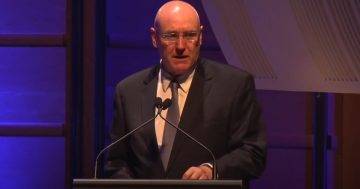
Dr Kim Vella. Photo: Supplied.
You’re smart. You’re qualified. You’re experienced. So why aren’t you progressing in your career?
It could be you’re lacking a healthy dose of EQ, or emotional quotient.
“Smarts and experience will only take you so far,” says Dr Kim Vella, an accredited executive career coach with a PhD in Sociology. “I regularly hear professionals say EQ is the fluff stuff, not the hard core, bottom line stuff. The reality is we have two minds—one that thinks and one that feels. The finest leaders understand this. They know how emotions play out at work and leverage them for better business results, both tangible and intangible.”
Essentially, EQ is a person’s ability to recognise and understand emotions and then use their understanding to make better decisions. It involves sharpening skills around self-awareness, self-regulation, motivation, empathy and social skills.
Easier said than done? Perhaps, but it’s essential says Kim. Indeed, research has found that successful leaders are more emotionally intelligent than unsuccessful ones. It’s also found that the vast majority of high performers have high levels of EQ.
“EQ is a skill that requires personal investment and continual development, even for those who find it comes more naturally,” says Kim. ‘This is especially true when developing the leadership style I believe is the most neglected today, and that’s the leader as coach. You can’t coach without high EQ.” Leaders who coach have a genuine interest in their workforce talent and nurture that talent so managers and staff shine.
‘They don’t have a fixed mindset that they impose,” says Kim. “Instead, they have a positive, growth mindset and support staff so they want to do their best and are able to do their best. Leaders who coach create opportunities for ongoing learning. They have stimulating conversations about long-term goals, options and possibilities and then use performance management to ensure people get there. Although it sounds surprising, these conversations typically don’t happen with other leadership styles.”
Leaders who coach are also authentic. “They remove fear and negative interpersonal experiences and pave the way for truthful and open feedback,” says Kim. “Someone who fosters positive feelings in others while withholding the truth is not a leader.”
Emotionally intelligent leaders who coach also see failure as opportunity. “They don’t judge, but use failure to learn and grow, including through training,” says Kim.
The challenge for many leaders is how to develop their EQ. Coaching and tailored EQ professional development are effective options.
“Training must be in context,” says Kim, “and focus on how the brain and nervous systems influence responses and interactions. It must teach leaders how to avoid unproductive and costly collisions. It must teach what coaching really is and how it differs from other leadership techniques. It must teach leaders skills for being present and flexible during conversations.”
Although it can be hard work, high EQ permeates through organisations and pays big dividends.
“It’s impact is undeniable,” says Kim. “It can lead to better productivity, greater efficiency, higher profits, enhanced staff morale, lower churn, a stronger market position and greater innovation. On the other hand, low EQ is costly and can lead to harassment, bullying, inflexible approaches and a negative impact on staff.”
High EQ not only helps at work. Just as impressive is how it helps on a personal level.
“EQ can lead to better work-life balance and general happiness and well-being,” says Kim. “People with high EQ feel good about life.”





















